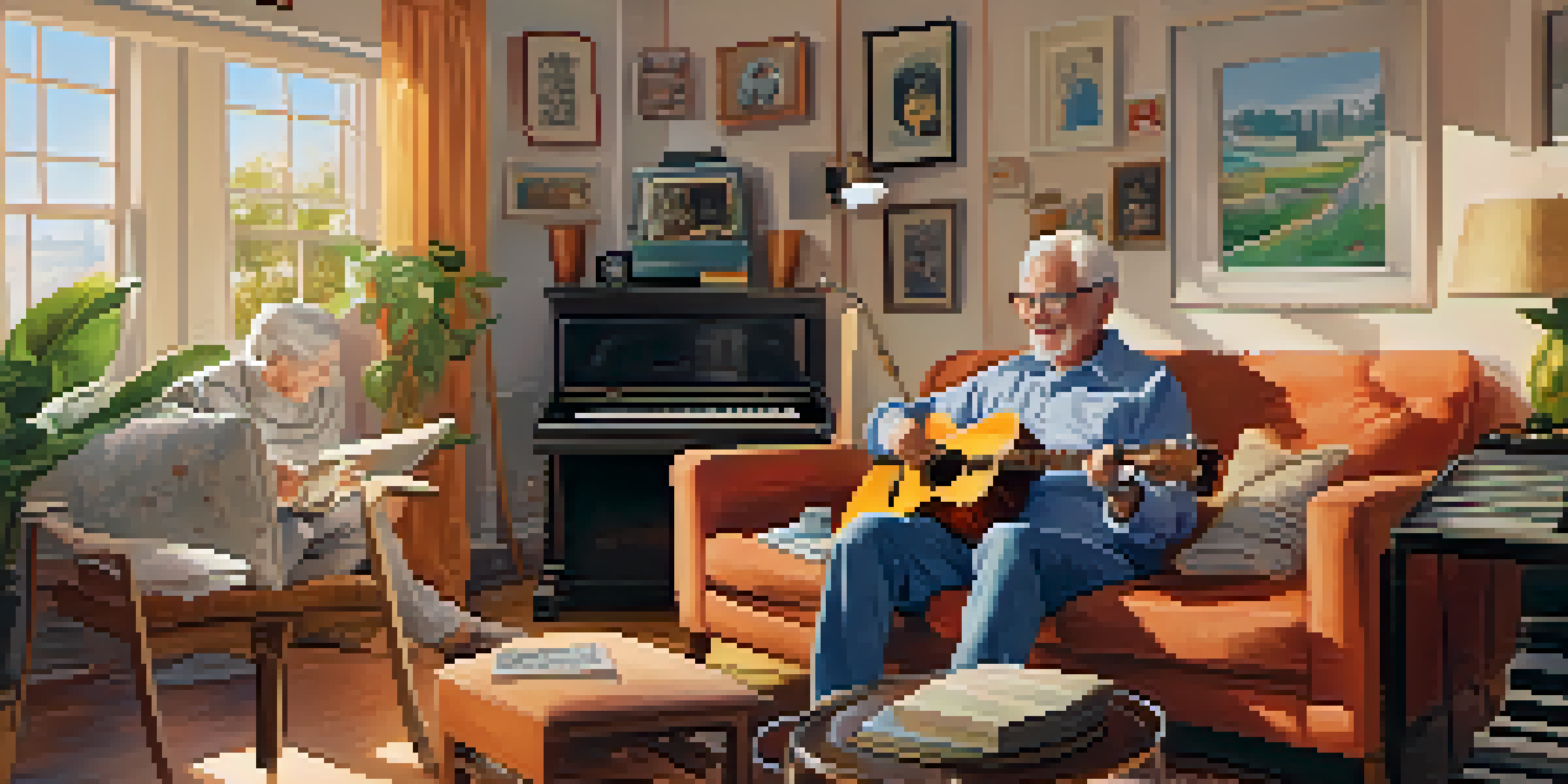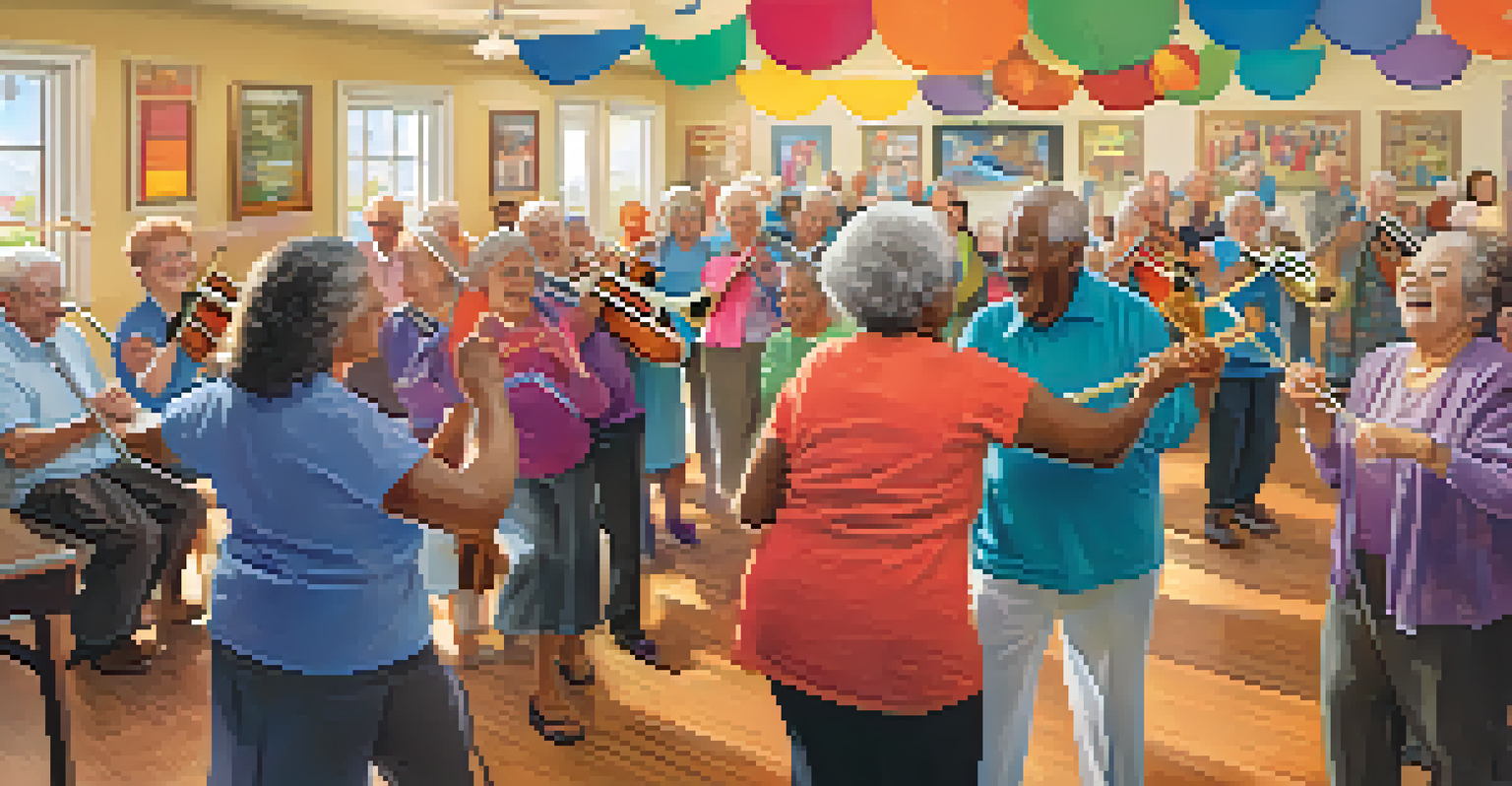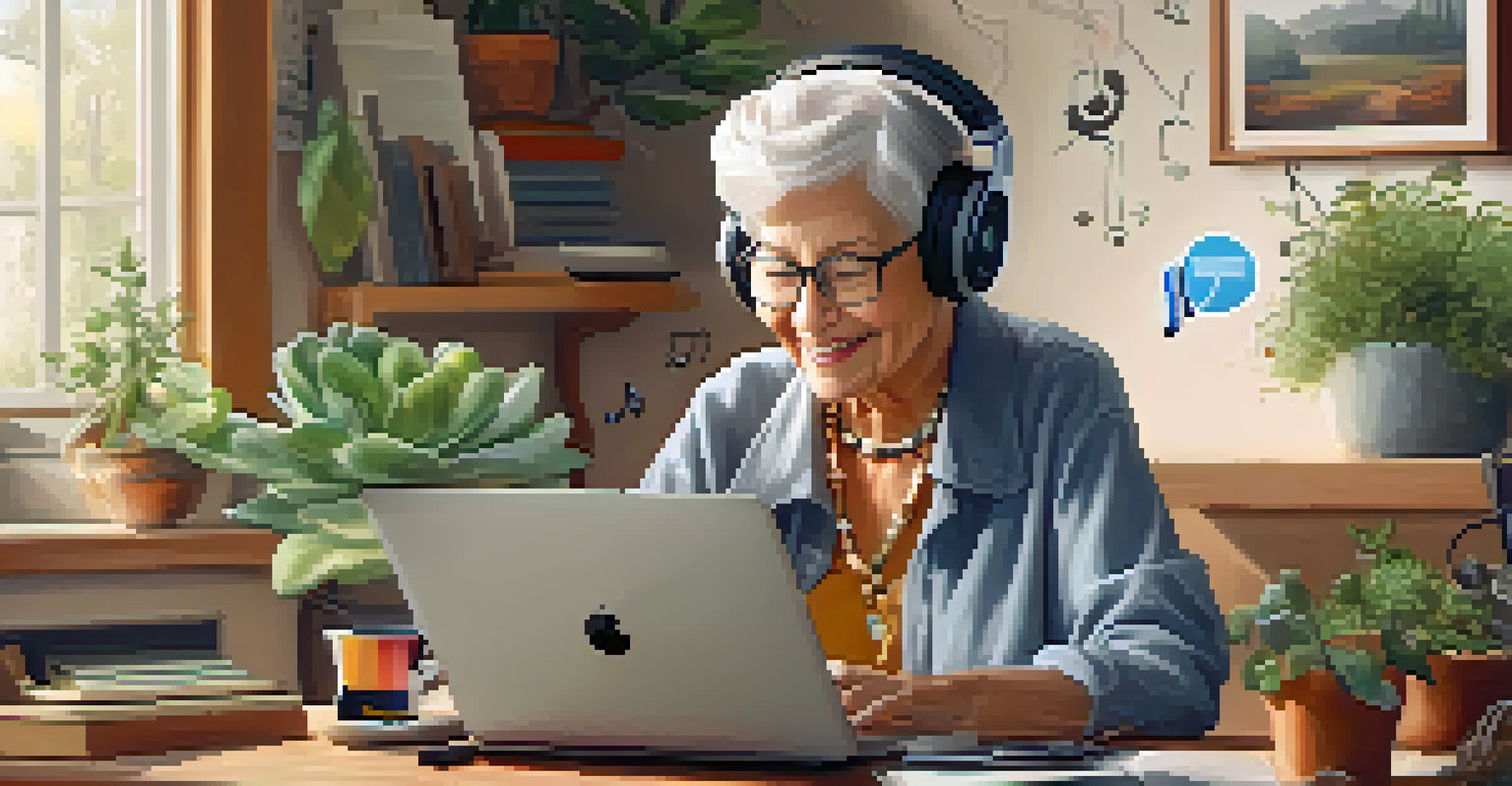Music and Mood Regulation: Supporting Seniors' Emotional Health

Understanding the Connection Between Music and Mood
Music has a profound impact on our emotions, and this is especially true for seniors. As we age, our emotional landscape can become more complex, often requiring additional support. Research shows that listening to music can trigger positive feelings and memories, helping to alleviate feelings of loneliness or depression.
Music can change the world because it can change people.
When seniors engage with music, they often experience a release of dopamine, the 'feel-good' neurotransmitter. This biological reaction can uplift their mood, making them feel more connected and alive. Just like a warm cup of tea on a chilly day, music can provide comfort and joy.
It's fascinating to see how different genres can evoke various responses. For instance, classical music might calm the mind, while upbeat pop songs can encourage movement and dance. Understanding these nuances can help caregivers select the right tunes to support emotional well-being.
Music Therapy: A Structured Approach to Healing
Music therapy is a formal practice that utilizes the power of music to address emotional, cognitive, and social needs. Certified music therapists work with seniors to create personalized plans that may include singing, songwriting, or listening sessions. This structured approach can significantly enhance emotional health and quality of life.

For example, a music therapist might use familiar songs from a senior's past to evoke cherished memories, stimulating conversation and connection. This not only brings joy but also promotes cognitive function. Even simple activities like clapping along to a tune can stimulate brain activity and improve mood.
Music Boosts Seniors' Emotional Health
Engaging with music can enhance emotional well-being for seniors by triggering positive feelings and memories.
The beauty of music therapy lies in its adaptability. Whether a senior enjoys classical compositions or lively jazz, a tailored approach can meet individual preferences. This personal connection to music can provide a safe space for emotional expression and healing.
Creating a Music Routine for Seniors
Establishing a regular music routine can be a simple yet effective way to support seniors' emotional health. This could involve daily listening sessions, sing-alongs, or even music-related activities like making instruments. The key is consistency, as familiar routines can create a sense of stability.
Where words fail, music speaks.
Consider setting aside specific times during the week for music activities. This not only provides something to look forward to but also encourages social interaction if done in a group. Sharing music can spark conversations and foster connections among seniors, enhancing their overall well-being.
Additionally, using technology can broaden musical experiences. Streaming services and apps allow access to a vast library of songs and playlists. This flexibility means that seniors can explore different genres based on their mood or preferences, making music a dynamic part of their daily lives.
The Role of Familiar Music in Emotional Health
Familiar music acts like a time machine, transporting seniors back to meaningful moments in their lives. Songs from their youth can evoke vivid memories, triggering emotions and stories that might otherwise remain dormant. This connection to the past can be both comforting and therapeutic.
For instance, a senior who grew up in the 1950s might feel an uplift when they hear popular hits from that era. The nostalgia associated with such music can alleviate feelings of sadness and isolation. It’s a gentle reminder of happier times, reinforcing the idea that joy can be found in cherished memories.
Music Therapy Enhances Quality of Life
Structured music therapy provides personalized emotional support, promoting cognitive function and connection through familiar songs.
Moreover, creating personalized playlists can enhance this experience. By curating songs that resonate with a senior's life story, caregivers can craft a soundtrack that speaks to their heart. This personal touch can make all the difference in their emotional journey.
Music as a Social Connector for Seniors
Music has an incredible ability to bring people together, and for seniors, this can be particularly beneficial. Group music activities, such as choir singing or drumming circles, foster community and connection. These social interactions can combat loneliness, which is a significant concern for many older adults.
Participating in group music sessions can also enhance communication skills and boost confidence. As seniors engage with others through music, they often find common ground and shared experiences. This camaraderie can lead to lasting friendships and a stronger sense of belonging.
In addition, community events that focus on music, like concerts or dance nights, provide opportunities for seniors to socialize in a vibrant atmosphere. These outings can invigorate their spirits and promote active participation in their community, enriching their emotional lives.
Harnessing Technology to Enhance Musical Experiences
In today’s digital age, technology offers exciting tools to enhance musical experiences for seniors. From streaming services to music-making apps, the options are vast and engaging. These innovations make it easier than ever for seniors to explore their musical interests and preferences.
For instance, smart speakers can play personalized playlists with just a voice command. This hands-free technology allows seniors to enjoy music without the hassle of navigating complicated devices. The joy of listening to their favorite songs can be as simple as asking Alexa or Google Assistant.
Music Fosters Social Connections
Group music activities encourage social interaction among seniors, combating loneliness and building a sense of community.
Moreover, online platforms provide access to virtual concerts and music classes, expanding seniors' horizons. They can enjoy live performances from the comfort of their homes or even learn to play an instrument online. This integration of technology can keep their passion for music alive, contributing to their emotional well-being.
Encouraging Self-Expression Through Music
Music is a powerful form of self-expression, and encouraging seniors to engage creatively can greatly benefit their emotional health. Activities like songwriting, playing instruments, or even just humming can provide a therapeutic outlet for feelings. This creative expression can help process emotions and experiences in a healthy way.
For example, a senior might choose to write a song about their life experiences, providing a platform for reflection and storytelling. This not only fosters creativity but also enhances cognitive skills as they articulate their thoughts and feelings. The process can be incredibly liberating and empowering.

Encouraging this type of engagement can also boost self-esteem. When seniors create or perform music, they may feel a sense of accomplishment and pride. This boost in confidence can have ripple effects, enhancing their overall emotional well-being and encouraging further creative pursuits.